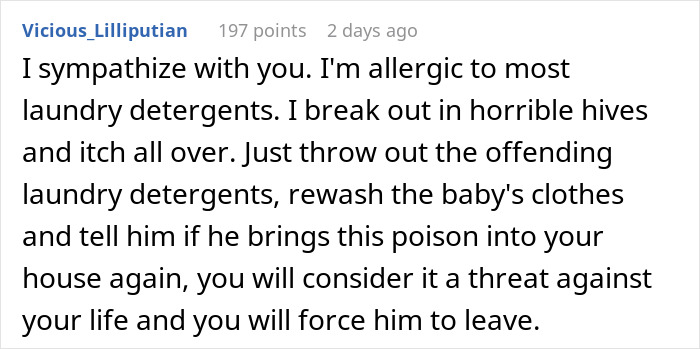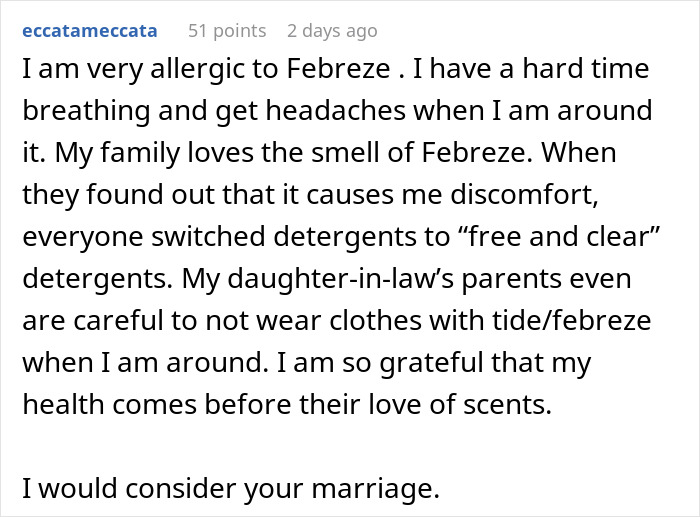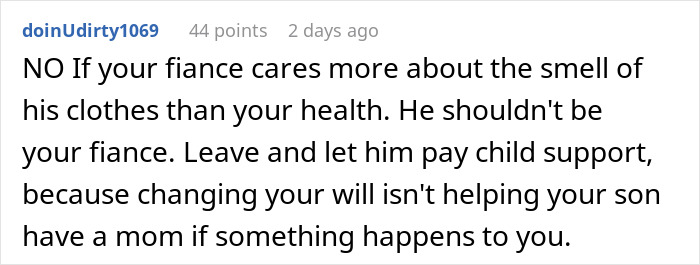While we use laundry detergents regularly, we don’t always realize the effects they can have on our health. This seemingly harmless household product can cause allergic reactions that trigger skin irritations and discomfort. In extreme cases, it can even lead to anaphylactic shock. To ensure one’s safety, it’s important to communicate this to people around them and ensure the allergy is respected.
Redditor Blumendieb found it difficult to get through this to her fiancé. He kept complaining that the detergent they use, which is safe for her, doesn’t make their clothes smell good. So he decided to wash their laundry with it anyway, which not only endangered her but also their unborn son.
Scroll down to find the full story and a conversation with blogger and food allergy expert Alyssa Perkins from The Cook and Chew Food Review, who kindly agreed to answer a few questions about allergies and relationships.
Seemingly harmless laundry detergent can lead to skin irritations and even severe allergies
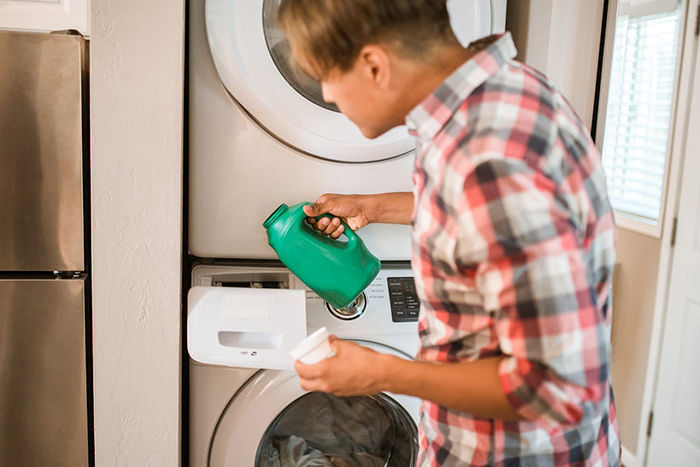
Image credits: RDNE Stock project / pexels (not the actual photo)
This man posed a risk to his wife-to-be after he downplayed her allergy to this household product
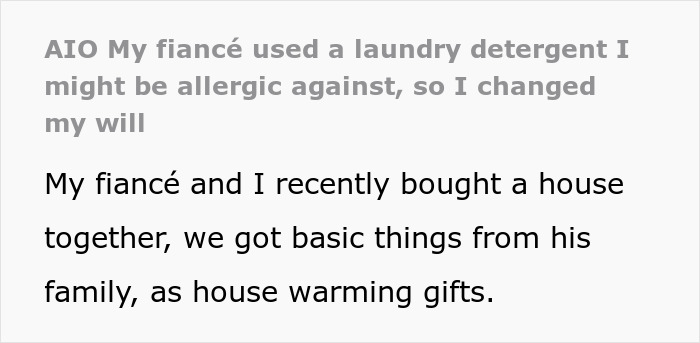
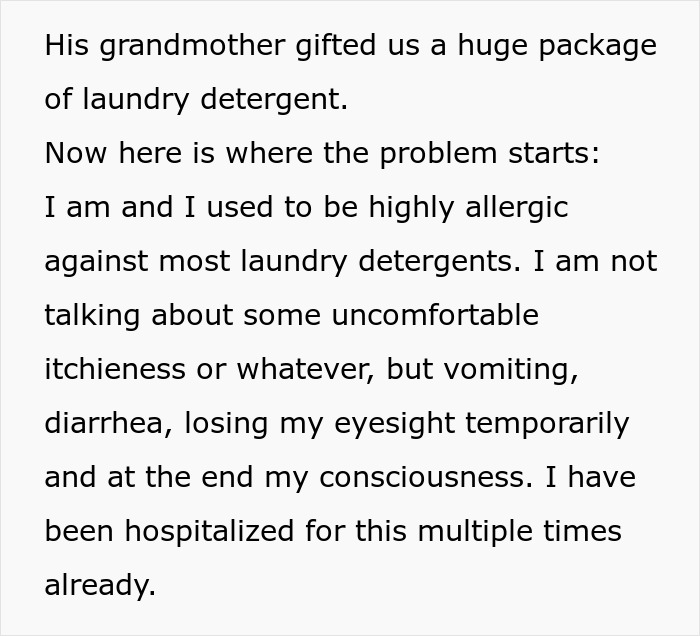
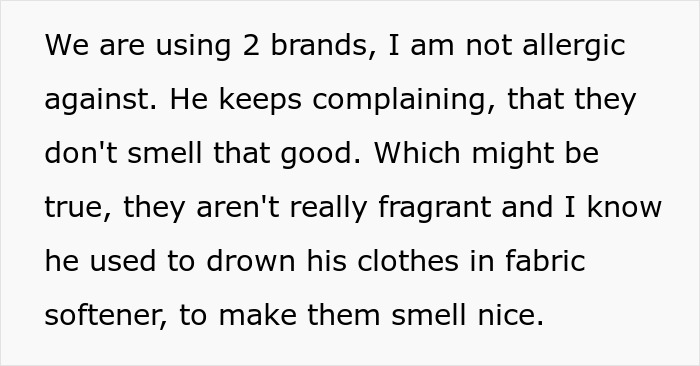
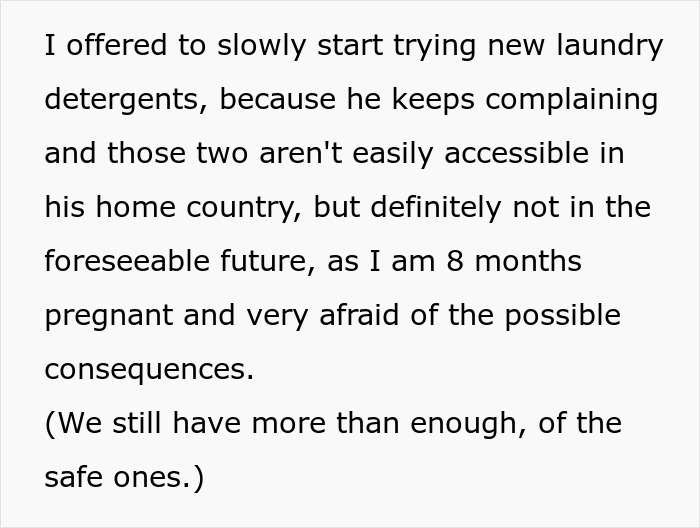
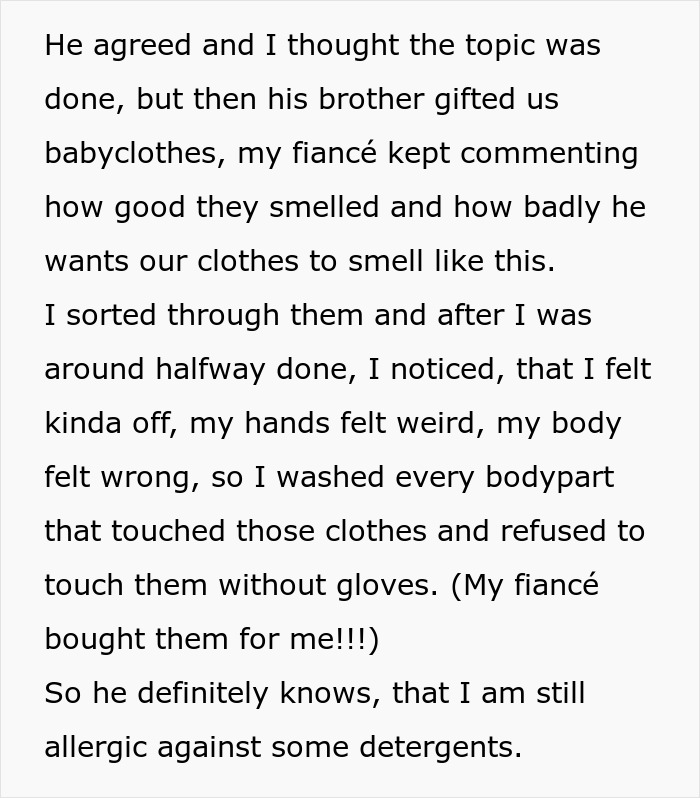

Image credits: shotprime / envato (not the actual photo)

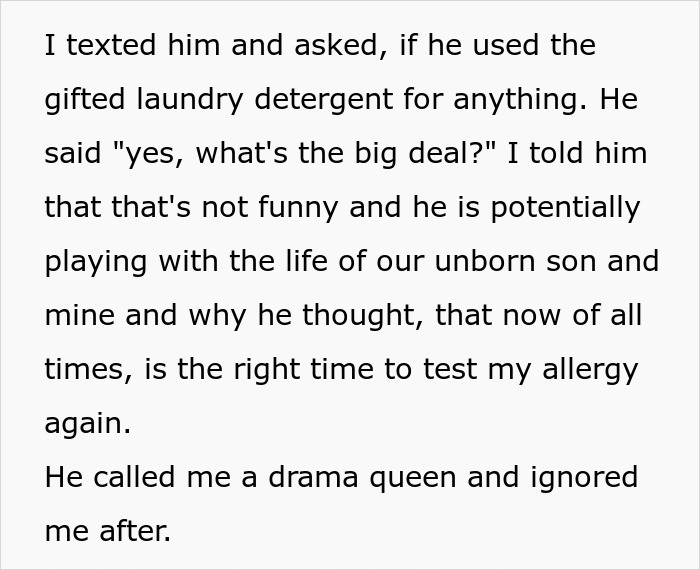


Image credits: Blumendieb
Laundry detergent allergies affect less than 1% of the population

Image credits: No Revisions / pexels (not the actual photo)
Allergic reactions to detergents are relatively rare, affecting less than 1% of the population. When a person who has it wears clothes that are washed with a product containing one or more ingredients they are sensitive to, their body has a negative reaction called contact dermatitis.
Symptoms of this condition include itchiness and red rashes with bumps and blisters. A person can also suffer from dry skin, cracking, burning, and flaking. In addition to various skin issues, laundry detergent can also irritate the cells in the lungs, leading to asthma and other severe reactions.
The ingredients in detergents that are most likely to irritate are fragrances, preservatives, and surfactants. Some people are also allergic to dyes used to give color to the cleaner. Preservatives are added to products to prolong their shelf life and kill bacteria or fungi. Surfactants help to break up stains and prevent the dirt from sticking back on the clothes.
Allergy symptoms from detergents can appear within a few hours or as late as 10 days after exposure to the allergen. When such reactions are noticed, it’s best to change the product to a hypoallergenic one that is specifically made for sensitive skin. To reduce buildup in the clothes and decrease exposure, it’s recommended to choose liquid over powder products, pour less of it, and make sure to rinse it thoroughly.
It’s important to openly communicate about allergies to partners

Image credits: SHVETS production / pexels (not the actual photo)
Ensuring your safety can be challenging on your own, but there’s an added layer of complexity when another person is romantically involved. To find out more about allergies and relationships, Bored Panda reached out to blogger and food allergy expert Alyssa Perkins from The Cook and Chew Food Review.
“Depending on the severity of the allergy, it may mean the allergen can’t be present in your house at all, which means your partner won’t be able to prepare or eat that food while at home and will have to take extra precautions
if they consume it outside your home,” she says.
Perkins believes that severe reactions to certain products can definitely put a strain on the relationship, as many allergies require compromise or dietary restrictions for everyone in the household. “For example, someone with celiac disease has to abstain from gluten in every form (please note that celiac disease is an autoimmune disease, not an allergy, but the same rules apply).
It can be incredibly difficult or even impossible to keep a kitchen celiac-safe while also preparing gluten-containing items. So, in a lot of cases, everyone who lives in the household has to eat gluten-free. Some partners may not be willing to make those kinds of sacrifices or may become resentful.
Even if they eat the allergen outside of the home, they will need to thoroughly clean their mouth, face, and any facial hair before kissing or becoming intimate with their partner who has an allergy. Some people may find that too much to deal with.”
Therefore, she recommends being upfront about severe food allergies when a person is starting a relationship. “This is why I recommend being very upfront about severe food allergies when you start a relationship. It may seem awkward, but it’s less awkward than having to ask, “Hey, could you go rinse your mouth out first?” if your date leans in for a good night kiss.”
If a partner doesn’t respect safety precautions, Perkins would consider it a red flag. “Well, if it were me, first I would want to make absolutely sure they understood how serious the allergy is. If they still don’t respect my safety precautions, or even tried to “test” if your allergy is real or not—I would personally consider that a red flag.”
To partners who want to support their significant other with allergies, Perkins recommends learning everything that can set their reaction. “Be willing to avoid the allergy yourself if necessary. Let your partner know you consider their health more important than your personal food preferences. Help your partner spot potential allergen sources, especially in restaurants and other public settings. Back them up if others question the severity of their allergy.”
The author provided more information in the comments


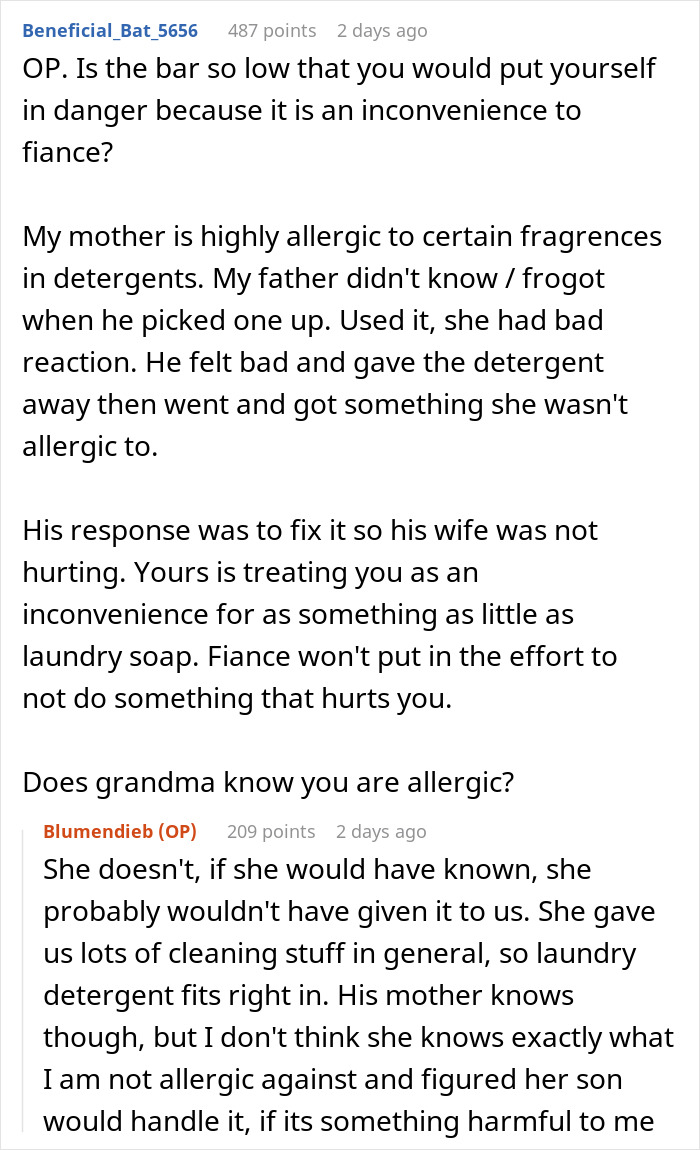

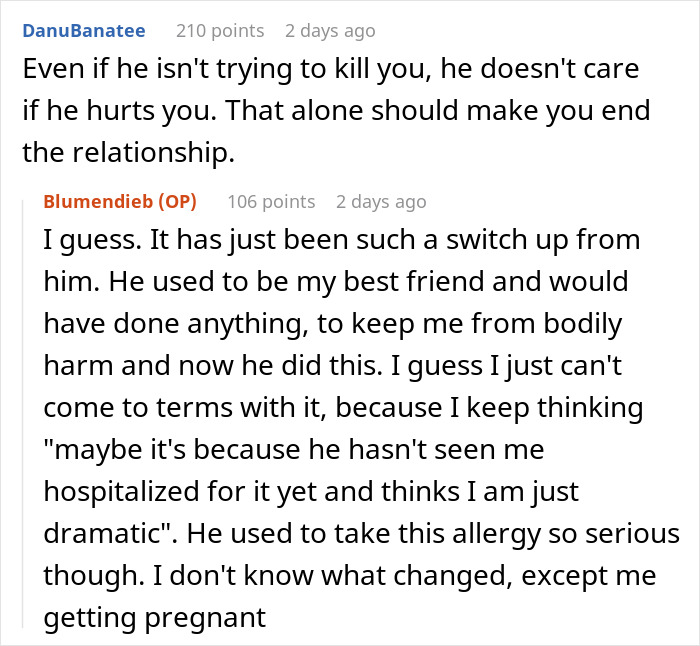


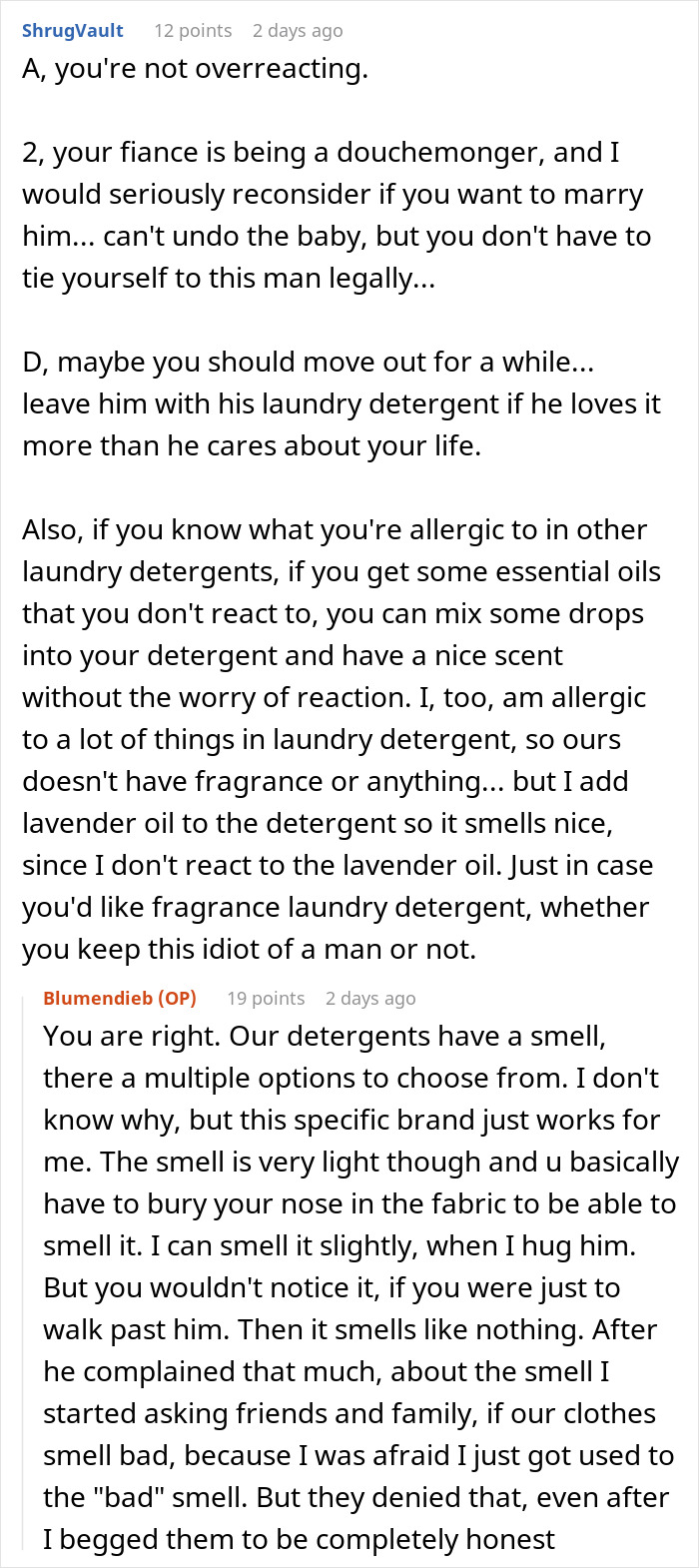
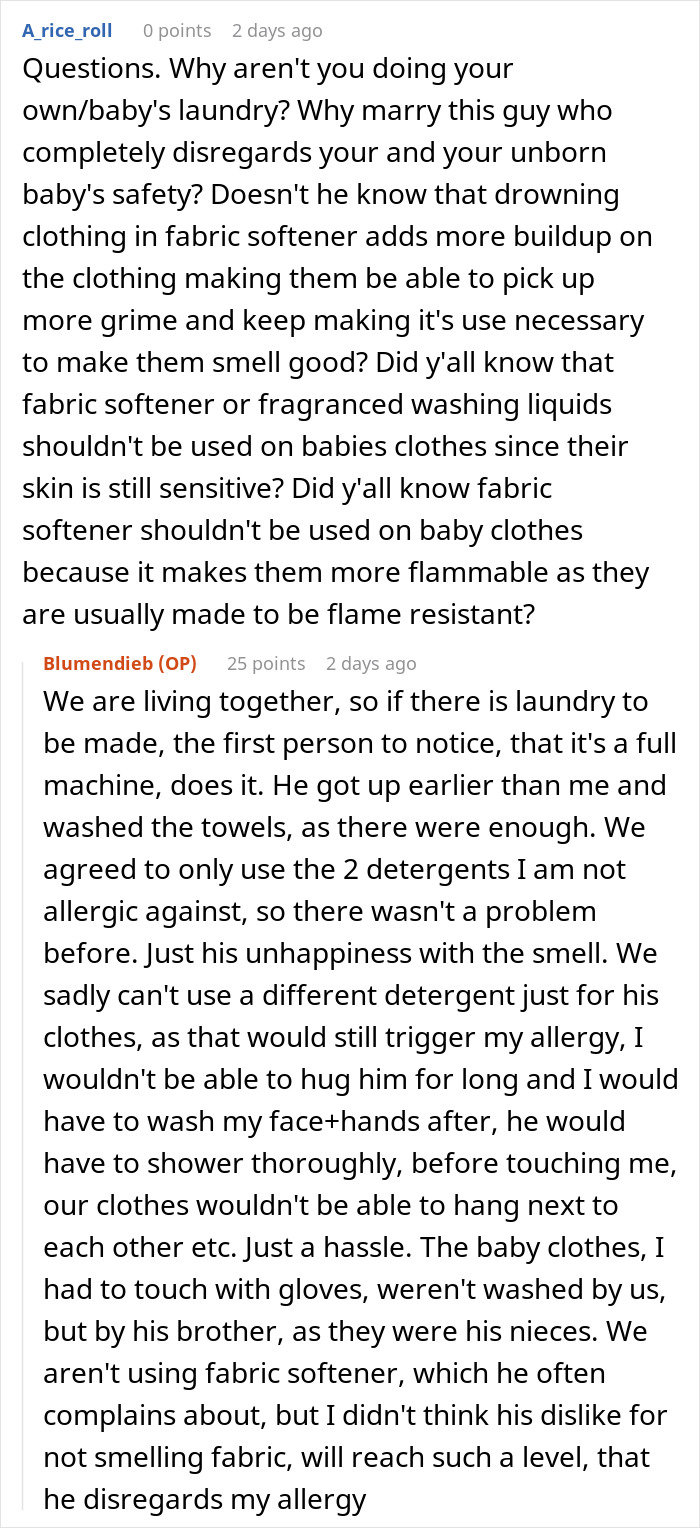
Readers sympathized with her and even provided suggestions
